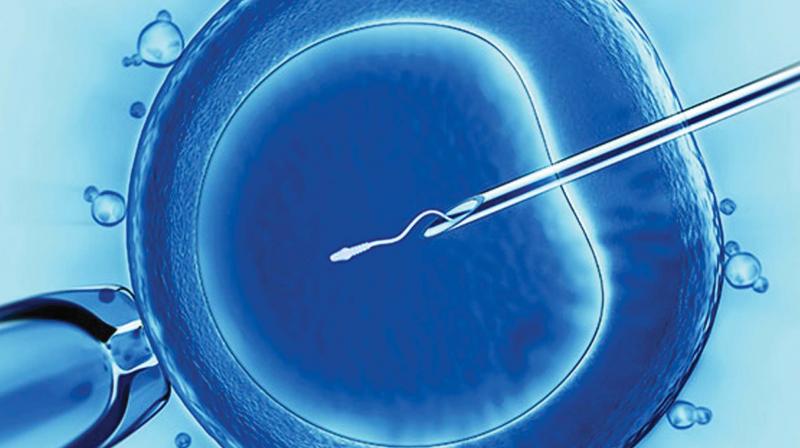Age and lifestyle responsible for the failure of IVF treatments
Medicos discuss the reasons behind recurrent implantation failures and advancements to improve the outcomes.

Chennai: Though the usage of Assisted Reproductive Technology (ART) for conceiving is on the rise, the incidence of repeated failures in these infertility treatments for pregnancy has also surfaced. Medicos discuss the reasons
behind recurrent implantation failures and advancements to improve the outcomes.
Recurrent implantation failure refers to the failure of achieving clinical pregnancy after the transfer of at least four good-quality embryos, in a minimum of three fresh or frozen cycles in a woman under the age of 40 years. The failure to implant may be a consequence of embryo or uterine factors.
Dr Erika Patel, fertility consultant at Nova IVI Fertility said “In cases with good embryo, one of the most common causes for IVF failure happens to be
implantation dysfunction, often identified in young women with a normal
ovarian reserve and whose partners are fertile. Human embryo implantation is an incredibly complicated and also multi-factorial procedure.”
Effective implantation needs the existence of a good embryo, as well as a receptive endometrium. There are several possible factors which can cause the implantation to fail such as thin uterine lining, immunological implantation dysfunction and surface lesions that protrude in the cavity of the uterus.
While maternal age is the most important variable in predicting implantation, the ovarian reserve of a woman also tends to decline sharply after the age of 30-35, say medicos. “The reasons for implantation failure could be because of uterine
problem and/or quality of the embryo. The health of the embryo depends on the quality of the gametes; i.e the oocyte and sperm quality, in cases with advanced maternal age the oocyte quality can be compromised affecting implantation and success of IVF,” said Dr Erika Patel.
The lifestyle of a patient also plays an important role in the outcome of an
IVF cycle. A nutritious diet, maintaining healthy body weight and reduction or elimination of alcohol and smoking helps in a successful IVF cycle.
Doctors say that women who are overweight or underweight not only have an increased risk of infertility but also have fewer chances of a successful IVF cycle versus women of normal weight.
Innovations improving IVF success rate
Innovative techniques such as Endometric Receptive Array (ERA), DNA fragmentation and blastocyst transfer are increasingly being used during the IVF process, which have significantly increased the success rate of IVF treatments.
Blastocyst culture is being considered a better alternative for IVF methods as an embryo is allowed to grow until day five in the lab. The embryos are
monitored until the blastocyst stage in this method and the best embryos are selected and transferred into the womb of the mother. Unlike the conventional IVF method, blastocyst culture and single blastocyst embryo transfer reduces the risk of multiple pregnancies and IVF failure in patients.

